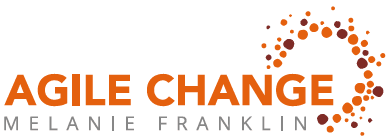As a judge for the Change Awards, I read lots of submissions for the category of best digital transformation.
As a judge for the Change Awards, I read lots of submissions for the category of best digital transformation. One thing that struck me about all the submissions was the recognition that transformation was much more than implementing new digital tools and applications. Transformation means transforming how others work.
This is a big leap forward, but the reason these submissions were worthy of short-listing for the awards is that recognition of the need for effective change management alongside project and programme management is still not universally recognised.
The next wave of digital transformation is now upon us, with the need to adopt new AI tools. There are different schools of thought about the impact of AI.
Whatever your view, one thing AI will do is change how people work. It is this impact on people that requires us to ensure the scope of any AI adoption includes behavioural change. A lot of the current AI initiatives focus on improving how people do their current jobs, using AI as a co-pilot to existing processes.
This does not radically alter the scope of the work, but it does require a shift in attitudes and beliefs. Our role in change might focus more on creating a culture that welcomes, enjoys and seeks out human and machine collaboration.
I think we can be at the forefront of these cultural transformations. Helping people create understanding and form their opinions about the role of humans in the value chain, and the type of work best suited to humans, and the skills we need for this.
Whatever stage of AI adoption your organisation currently has, it is worth raising questions about the culture, beliefs, attitudes and behaviours needed to best exploit AI whilst ensuring a great environment for humans.
Sadly, I am not seeing much of this work at the moment, and whilst I am threading it through the various changes I am involved in, this feels too piecemeal at the moment.
I did some work a few years ago with a forward thinking CEO who wanted to build a “data driven culture”. This was a further development on the agile culture that his organisation had adopted, and there are some useful pointers in this webinar and paper. I think the diagram in this paper showing the elements of a cultural change are a good starting point for building your AI culture.
